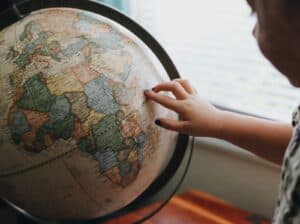Embarking on a journey of cultural perspectives on happiness is like opening a treasure chest of wisdom. Every culture weaves its own narrative, crafting unique practices and beliefs that define their quest for joy. I’m here to take you through the vibrant mosaic of global happiness, where each piece tells a story of life’s greatest pursuit.
As we dive into this exploration, you’ll discover that happiness isn’t one-size-fits-all. It’s a patchwork of traditions, emotions, and philosophies, each offering valuable lessons on wellbeing. Join me as we uncover the secrets of happiness from around the world, and perhaps, find new ways to infuse joy into our own lives.
This isn’t just about understanding happiness; it’s about experiencing the unity in our diversity. Together, we’ll learn how interconnected we truly are, sharing a common thread in our search for a meaningful life. So, let’s begin this enlightening adventure and see where it takes us.
Cultural Perspectives on Happiness

Exploring Cultural Perspectives on Happiness
As I dive into the richness of human emotions and cultural perspectives on happiness, one thing becomes abundantly clear: happiness is as varied as the cultures from which it springs. Over the years, I’ve learned that happiness across cultures is a concept deeply rooted in a society’s philosophy, traditions, and values.
In many Eastern cultures, the collective harmony and societal norms play a pivotal role in shaping individual well-being. In these societies, cultural narratives around happiness often emphasize the needs of the group over the individual. This contrasts with Western, individualistic cultures, which tend to encourage personal achievement and success as benchmarks of happiness. My own observations have shown me that this isn’t just a matter of eastern versus western— it’s a profound example of how culture affects happiness and life satisfaction.
This captivating journey into the cultural perspectives on happiness isn’t merely academic—it’s a personal expedition to uncover the profound insights hidden in ancient cultural traditions and modern insight. For instance, the concept of well-being is approached very differently when we look at Eastern cultures. They often value community and interconnectedness, suggesting that the roots of joy might lie in our connections to others rather than in our individual achievements.
Happiness and Education: Bridging Cultural Gaps
Through my global exploration, I’ve seen that education bridges cultural gaps, providing a unique vantage point to compare cultural happiness beliefs. In collectivist societies, for instance, education often reinforces the importance of family and community, laying the groundwork for a collective sense of happiness that resonates through each individual.
Conversely, in more individualistic societies, education can focus more on personal growth and self-fulfillment, shaping cultural well-being in distinctive ways. The different cultures offer varied recipes for happiness, tailored to their unique philosophies and histories.
Ancient Wisdom and Modern Happiness
The ancient wisdom of past civilizations and diverse views on joy continue to influence today’s happiness paradigms. Cultural traditions aren’t static; they evolve. But they leave a lasting impact on how we define joy and satisfaction. As we edge toward a better cross-cultural understanding, I’ve noticed a growing appreciation for the remarkable ways cultures color our experiences of human happiness.
The Wisdom of Different Cultures

Exploring cultural perspectives on happiness is a captivating journey that delves deep into the rich tapestry of human experience. Across continents and oceans, different cultures offer unique views on what it means to live a fulfilling life. These perspectives are not static—they’ve evolved as societies have grown and changed, influencing and being influenced by an array of factors including technology, globalization, and cross-cultural understanding.
Cultural Happiness Beliefs: A Global Mosaic
The ways in which culture affects our idea of happiness are as varied as the cultures themselves. In East Asian cultures, for instance, well-being is often seen through a communal lens, highlighting the importance of social harmony and collective prosperity. Eastern cultures tend to emphasize qualities like social connectivity and familial bonds as critical components of life satisfaction.
On the flip side, many Western societies cherish individualistic cultures’ values, where personal freedom, self-expression, and achievement are cardinal parameters framing their cultural narratives of happiness. The last few decades have seen an unlocking of profound insights hidden in these cultural outlooks.
Happiness Across Cultures: Shaped by Ancient and Modern Insight
Tracing the paths to happiness means looking to the ancient wisdom stored within countless generations. These cultural traditions speak to the shared human desires for connection, meaning, and enjoyment found in human existence. Yet, they also reflect how societal norms and cultural mindsets mold our understanding of human happiness.
My exploration into these rich cultural heritages reveals the presence of education as a significant bridge over cultural gaps. Learning about diverse views on joy and the various ways to approach well-being can unify disparate cultural entities, yielding a more comprehensive notion of global well-being.
Ancient Wisdom: Echoes in Modern Happiness Paradigms
In my journey, I’ve discovered that today’s quest for happiness still draws heavily on ancient cultural traditions. These age-old practices, from mindful meditation in Buddhist traditions to the joyous communal feasts found in many African societies, continue to shape cultural perspectives on happiness.
Moreover, this global exploration has shown me the remarkable ways cultures color our understanding of joy. For instance, the Nordic concept of ‘hygge’—a sense of cozy contentment—is a testament to how regional differences influence our happiness ideals.
The Patchwork of Happiness
Exploring Cultural Perspectives on Happiness
As I continue on this captivating journey of discovery, I’m struck by the rich array of cultural happiness beliefs. It’s evident that happiness across cultures entails a spectrum of experiences and definitions, each uniquely colored by societal norms and values. My exploration has led me to uncover diverse views on joy and contentment, revealing how deeply human happiness is intertwined with the cultural context in which it thrives.
Delving into Eastern and Western Ideals
The contrasts between Eastern cultures and Western individualistic societies are profound when it comes to happiness. In East Asian cultures, there’s a distinct emphasis on social cohesion and collectivist societies, where the group’s well-being often takes precedent over the individual’s desires. Meanwhile, Western civilization champions personal achievement and freedom, shaping cultural narratives that focus on individual success as a significant component of life satisfaction.
Ancient Wisdom Informing Modern Insight
Few things are as mesmerizing as witnessing how ancient cultural traditions continue to inform modern insight into what constitutes a happy life. These traditions offer a window into the profound insights hidden within bygone eras, showing us the remarkable ways cultures color our pursuit of well-being. I’ve realized that the threads of ancient wisdom are still woven into the fabric of today’s happiness constructs, offering us timeless lessons on well-being.
The Role of Education in Bridging Cultural Gaps
One cannot underestimate how education bridges cultural gaps, fostering cross-cultural understanding and appreciation for the global wisdom on well-being. By exploring cultural definitions and mindsets about happiness, educational endeavors can illuminate the shared human desires that transcend cultural boundaries, while still celebrating cultural diversity.
Happiness as a Reflection of Societal Norms
Every society carries its mirror in which human emotions are reflected, exposing the subjective well-being molded by how societal norms influence individual expectations and satisfactions. In my travels and studies, I’ve seen cultural traditions evolve, yet maintain a core relationship to human existence that tangibly affects both group and personal happiness and life satisfaction.
Lessons from Around the World

Embarking on a quest to elucidate happiness across cultures, I’ve been graced with profound insights hidden in the diverse views on joy. This captivating journey stretches beyond mere pages, drawing me into a world where culture plays a pivotal role in shaping the feelings and subjective well-being of societies.
Exploring Cultural Perspectives on Happiness
In my explorations, I’ve discovered that well-being in Eastern cultures often aligns with collectivist societies. These communities prioritize social harmony above individual gain, nurturing a strong connection between personal and cultural well-being. I’ve also witnessed how societal norms in these regions dictate the celebration of shared human desires, highlighting how cultural norms shape every facet of human happiness.
Moving to individualistic cultures, particularly those in the Western realm, personal achievement and freedom emerge as cornerstones of life satisfaction. These individualistic societies celebrate autonomy and personal success as the epitome of happiness and life satisfaction.
Cultural Happiness Beliefs and Ancient Wisdom
Interlacing the threads of modern insight with ancient cultural traditions offers an even richer depiction of global happiness. As I step further into different communities, I see the ancient wisdom that has been passed down through generations still greatly influencing local cultural narratives.
Education, I’ve learned, holds immense power in bridging cultural gaps. It fosters a cross-cultural understanding that is pivotal in our global exploration of joy and cultural diversity. Through education, we’re granted a passageway to explore cultural definitions that were once obscure, enabling the preservation of cultural traditions while also gaining appreciation for different cultures and their unique cultural mindsets.
Diverse Views on Joy and Societal Influence
The cultural journeys I have undertaken have unveiled the remarkable ways cultures color perceptions of contentment and fulfillment. Throughout this odyssey, one thing has become abundantly clear: the intricacies of human emotions and the cultural differences that define them are boundless. How culture affects one’s sense of happiness is not just a static notion but an ever-evolving dynamic, reflective of both collective human existence and individual experiences.
Infusing Joy into Our Lives

The quest for happiness is a universal one, yet it manifests uniquely across the globe. As I delve into exploring cultural perspectives on happiness, I’m struck by the profound insights hidden within each society’s traditions and values. My journey, enriched by ancient wisdom and diverse views on joy, is a captivating one that leads me to the heart of what it means to experience human happiness.
Exploring Cultural Perspectives on Happiness
As we navigate through the intricate tapestry of cultural beliefs, education bridges cultural gaps, allowing us to approach happiness across cultures with an open mind. Eastern cultures, with their collectivist societies, offer a distinctive take on well-being, where social harmony takes precedence over individual triumphs. The serenity found in a unified community provides a stark contrast to the individualistic cultures of the West. Here, personal freedom and self-achievement are often the cornerstones of life satisfaction.
This global exploration takes me to East Asian cultures, where societal roles and ancestral reverence have shaped cultural narratives surrounding happiness and life satisfaction. Simultaneously, it’s evident how societal norms influence our perception and expression of joy. Western societies, in the past few decades especially, have shifted towards a more holistic view of well-being, recognizing the value of emotional health alongside material success.
Cultural happiness beliefs are not just static relics of the past; they evolve, adopting new forms while retaining their essence. My journey thus becomes a remarkable narrative of cultural traditions adapting to modern insights without losing their foundational ethos. This fascinating interplay between ancient cultural traditions and contemporary life encapsulates the shared human desires for contentment and purpose.
The idea that culture plays a pivotal role in our individual experiences of happiness cannot be overstated. From the vibrant festivals that sweep through the streets of Rio de Janeiro to the quiet reflection practiced in Japanese tea ceremonies, it’s clear that cultural diversity enriches our understanding of joy. By exploring cultural definitions of happiness, I uncover the remarkable ways cultures color our lives, shaping how we perceive and pursue fulfillment.
Unity in Diversity: Our Shared Quest for Happiness
As I delve deeper into exploring cultural perspectives on happiness, I’ve come across a universal truth that resonates across continents: our collective pursuit of well-being. Despite the myriad cultural narratives that have shaped the human happiness experience over centuries, there’s an astonishing commonality—the intrinsic desire for joy and contentment in our lives.
Cultural Happiness Beliefs: A Mosaic of Well-Being
Each culture paints a unique portrait of happiness, yet they all contribute to a vibrant mosaic. In my captivating journey through different cultures, I’ve observed remarkable patterns. Eastern cultures, for instance, offer profound insights hidden within their ancient wisdom—where social cohesion takes precedence over individual accolades. Conversely, individualistic societies in the West often equate success with personal achievement and life satisfaction.
Happiness across cultures isn’t a flat, monochromatic concept; rather, it’s dynamic, reflecting the evolving human spirit. Education bridges cultural gaps, illuminating the diverse views on joy that have long been cultivated by societal norms and ancient cultural traditions. Like a student of the world, I absorb modern insight juxtaposed with global wisdom, which propels our understanding of happiness to new heights.
Diverse Views on Joy: The Cultural Spectrum of Emotions
Understanding cultural differences in happiness challenges me to look beyond my preconceptions. Collectivist societies often view well-being as a harmonious balance of community and solidarity, whereas individualistic cultures prioritize personal autonomy and self-fulfillment. The cultural mindsets around what constitutes happiness—whether it’s the rigors of scholarly wisdom in Europe or the familial bonds of African tribes—underscore the richness of our global exploration.
The happiness and life satisfaction equation is complex, embedded with values and beliefs that cultural narratives have meticulously woven. It’s fascinating to see the remarkable ways cultures color human emotions and how these shades of joy translate into lived experiences. It’s clear that across the globe, whether it’s in the quiet reflection of East Asian cultures or the expressive fervor of Latin America, happiness takes on different hues, yet reflects shared human desires.
Key Takeaways
Discovering how cultures around the world perceive happiness has been an enlightening journey. It’s clear that our cultural backgrounds deeply influence our definitions and experiences of joy. While Eastern philosophies often intertwine happiness with community and social harmony, Western viewpoints usually tie it to personal success and liberty. This exploration has shown me that happiness is a multifaceted concept shaped by history, society, and personal beliefs.
It’s a reminder that understanding and respecting these diverse perspectives can enrich our own lives. As we continue to learn from each other, we can expand our own horizons of what it means to live a fulfilled life. Embracing this diversity not only broadens our worldviews but also connects us more deeply to the rich tapestry of human experience.
Other suggested articles:

